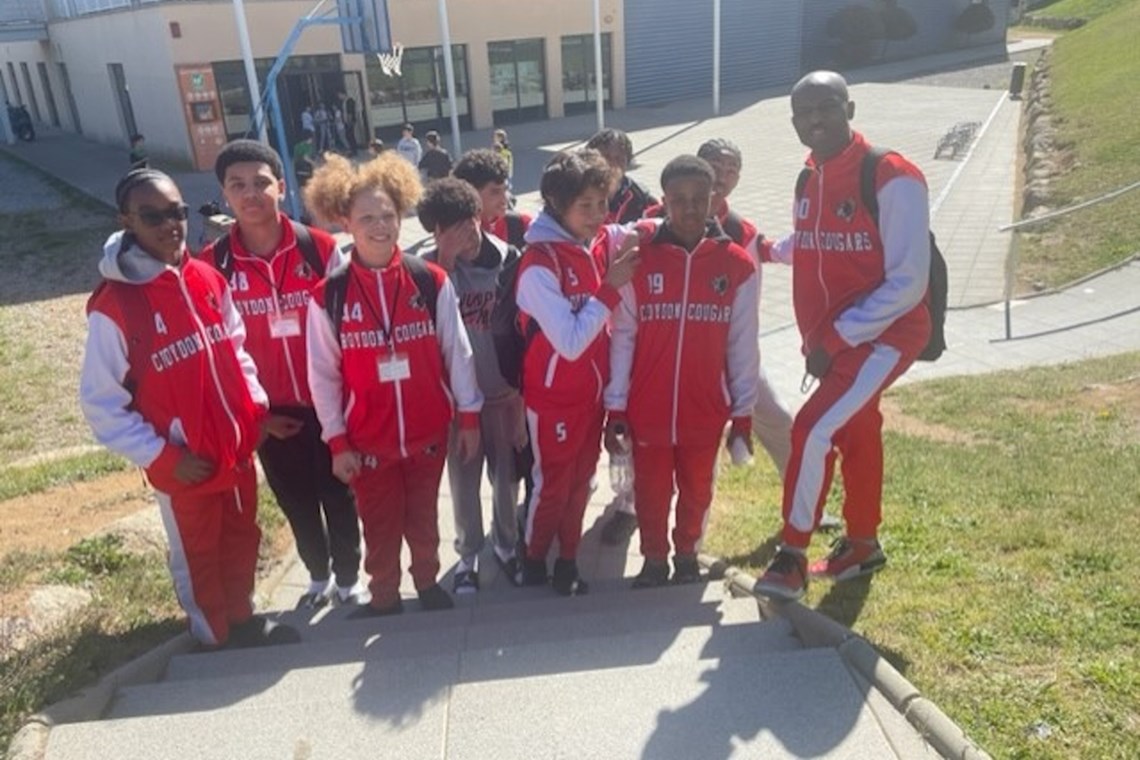
A history teacher since 2001, Mundy-Castle became a headteacher in 2016 and executive headteacher in 2018.
He currently chairs an external reference working group for the Mayor of London Police and Crime Board and is a consultant headteacher for two schools in Bracknell Forest Council.
He also inspects schools on behalf of the Council of British International Schools.
Mundy-Castle enjoyed a decorated playing career, representing England and Great Britain in the 1990s, winning the BBL twice with London Leopards, plus claiming two NBL National Cup titles (one with London Leopards, one with Brixton).
Whilst with the Solent Stars, the talented shooting guard claimed a D1M title, plus a BUCS Championship with London South Bank.
In 2010, Mundy-Castle started a community club, Croydon Cougars, who currently play in the Jnr. NBL, plus London and Surrey local leagues.
In this article for World Mental Health Day, Mundy-Castle writes about the effects different professional environments have had on his mental well-being throughout his life.
Growing up as a 90s child, lots of people were worried about saying that they had any sort of mental health challenge, or that they were stressed, unhappy or depressed.
I think that the shift has probably happened in the last five years, where people feel comfortable talking about mental health, and it is so refreshing to see people more open.
When you play professional sports, of any discipline, you are mentally in a different place.
You are always second guessing yourself about whether you are good enough; whether you can stay injury free, because if you get injured, somebody might drop your contract and that is it, you don't get paid.
Because nothing is guaranteed, there's a bit of uncertainty, which has a huge impact on your mental well-being. Only a few will ever get the type of deals that happen in the NBA, so you can be on the edge when you play pro. Sometimes it drives you to be a different person. I was overly aggressive as a point guard because I always wanted to protect myself.
Reading Kofi Josephs' personal account of his mental health challenges made me think how positive it was to see somebody high-profile talk about their coping mechanisms.
As a basketball community, we should encourage more of that.
When you move into a more secure working environment, like education, the demands are slightly different. For me, it was about accepting responsibility for looking after lots of other people, especially young people, who need support. So, in terms of the stresses on me, I felt they were good ones.
The working environment differs to playing pro ball because you have got a lot more support to help you regulate your own decision making, whether it is school governors or colleagues in a senior leadership team.
It is empowering to have those structures and people to talk to, so you are not on your own with your thoughts spinning around, asking yourself what the right judgement call is.
You never get it right 100% of the time. Just accept that if you do something with good intentions, then you can live with it.

I think all basketball coaches need to be reminded of their responsibilities to care for the mental well-being of their charges, be it juniors or seniors.
It is looking at somebody's attitude when they come into practice, picking up on when somebody's not quite themselves and having the capacity to have a conversation with that person. I think a coach is well placed to be able to do that.
From a board perspective, we want to make sure people hear that from us; that we expect that from our coaches, especially, from our performance coaches.
We want to create a climate that says it's okay for people to talk about their feelings and their own mental well-being.
In school, there are applications that we encourage young people to use to share how they are feeling. Our first job is awareness. Helping clubs, organisations and individuals know that these tools exist.

I have protected myself over the years by exercising regularly.
I am 49, and I still play basketball at Flaxman Sports Centre in Camberwell every Sunday. I have been going there since I was 18.
It allows me to bring out my inner child, to feel free, and have camaraderie with my friendship group. No one cares what you do, everybody’s just there to be in each other’s company. If I am honest, it is more about the conversations. Basketball is secondary.
I would always encourage people to find something that allows them that kind of release.
Additionally, make time for your family. Switch off from work and focus on them. That will help you to manage some of the mental health pressures you might ordinarily face.
.
.
.
